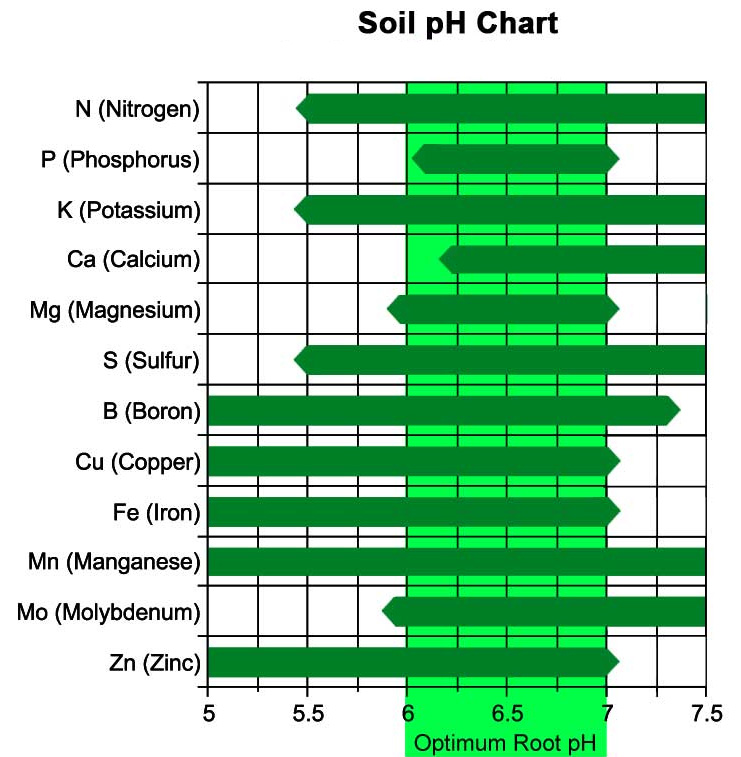The Best pH for Plumeria
Soil pH
Plumeria will survive in a wide range of soil pH, but that doesn’t mean they will thrive. Growing plumeria for over 40 years and experimenting with pH levels, we have found for us the best pH for plumeria is between 6.5 – 7.0. The chart below will show you why. (a measure of the acidity or alkalinity of the soil) Soil pH is one of the most important soil properties that affect the availability of nutrients.
Macronutrients tend to be less available in soils with low pH
Micronutrients tend to be less available in soils with high pH
Lime – can be added to the soil to make it less sour (acid) and also supplies calcium and magnesium for plants to use. Lime also raises the pH to the desired range of 6.0 to 7.5. So add then check after watering and allowing lime to soak in.
In this pH range, nutrients are more readily available to plants, and microbial populations in the soil increase. Microbes convert nitrogen and sulfur to forms that plants can use. Lime also enhances the physical properties of the soil that promote water and air movement.
- It is a good idea to have your soil tested. If you do, you will get a report that explains how much lime and fertilizer your crop needs.
- Water pH
pH Testing
Because of the specific requirements for proper mineral uptake, it is important to test the pH of three things: your water, your fertilizer solution, and your growing medium. Litmus paper and pH drops are reliable enough for generalizations and maintaining a healthy system. However, if a problem is noticed, then a more accurate method should be employed. A high-quality pH meter can be used to test water, fertilizer solution, as well as the growth medium. The most popular tool used to test pH is BlueLab pH Pen because of its versatility and ease of use. We also suggest the Myron L Ultrapen PT2 for the most accurate reading. Unlike its competitors, it reads the pH to the hundredths place, which can be very important when you consider that pH is a logarithmic scale. For a more in depth look at your solution’s total dissolved solids, we suggest the BlueLab Combo Meter. This meter measures pH, EC, has a replaceable probe, and a 5 year warranty.
pH Adjusting
In fertilizer solutions, using a pH up or down solution may be required in order to achieve the preferred acidity or alkalinity. PH up generally consists of Potassium Bicarbonate and/or Sodium Bicarbonate. PH down is the most popularly Phosphoric Acid and/or Citric Acid. The ingredients of the pH solution used, as well as the ingredients of the nutrient solution, will determine the short term and the long term stability of the pH of the solution. Bicarbonates can have long lasting effects on the media environment and should be used in hydroponic gardening, or very sparingly for soil. In soil, Dolomite Lime should be the go-to ingredient for long term pH stabilization. Phosphoric Acid, which is ideal for hydroponics, can keep solutions stable for much longer than a Citric Acid based pH solution, but may not be better to acidify a soil grow. One of our favorite organic pH adjusters is Vitazyme and Carl Pool’s Root Activator. 